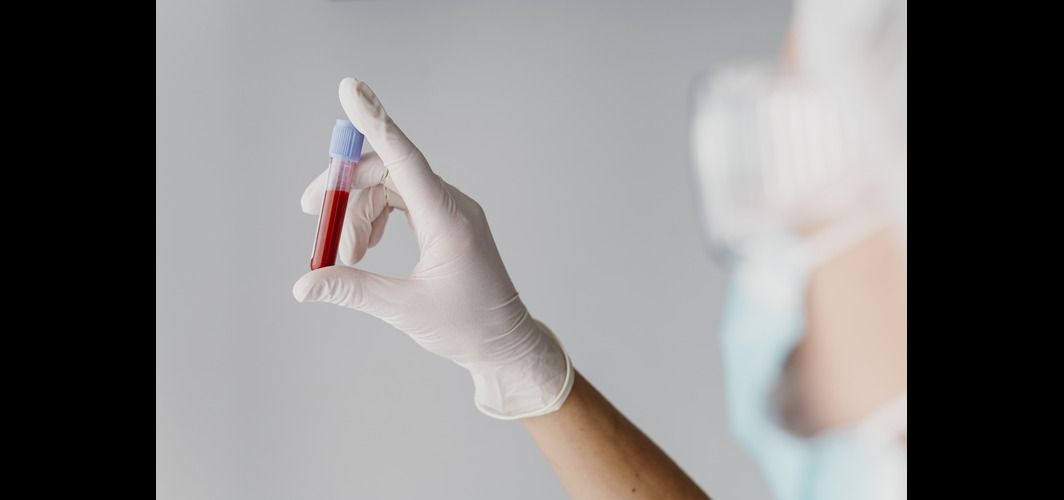General Health
Anti-CCP Test: Purpose, Procedure, Range, and Results
6 min read
By Apollo 24|7, Published on - 13 February 2025
Share this article
0
0 like
.jpg?tr=q-80)
Autoimmune diseases, like rheumatoid arthritis (RA), are often challenging to diagnose due to their complex and varied symptoms. As part of the diagnostic process, doctors rely on a variety of tests to confirm or rule out these conditions. One such test, the Anti-Cyclic Citrullinated Peptide (Anti-CCP) test, plays a crucial role in the diagnosis of rheumatoid arthritis. This article provides an in-depth explanation of the Anti-CCP test—what it is, why it's important, how it’s performed, what the results mean, and other key considerations for patients.
What is the Anti-CCP Test?
The Anti-CCP test is a blood test that detects the presence of antibodies against cyclic citrullinated peptides (CCP), which are proteins that can trigger an immune response in individuals with autoimmune diseases, particularly rheumatoid arthritis (RA). In RA, the body’s immune system mistakenly attacks the lining of the joints, leading to inflammation, pain, and damage over time. These antibodies are one of the key biomarkers associated with RA, and the presence of anti-CCP antibodies in the blood can be a critical indicator of the disease, making the anti-CCP test a valuable tool for early diagnosis and appropriate treatment planning.
Purpose: Why Do Doctors Order the Anti-CCP Test?
Doctors order the Anti-CCP test when a patient shows certain symptoms that could suggest rheumatoid arthritis (RA) or other autoimmune conditions. These symptoms might include:
- Joint pain, swelling, or stiffness, especially in the morning
- Fatigue or general discomfort that doesn’t seem to go away
- Reduced range of motion in the joints, making movement difficult
There are several key reasons why your doctor might recommend this test:
- Early Diagnosis of Rheumatoid Arthritis: The Anti-CCP test can detect RA before symptoms become severe. If anti-CCP antibodies are found in the blood, it can help your doctor diagnose RA early, which is important for starting treatment as soon as possible and preventing damage to the joints.
- Differentiating Between Conditions: There are many types of arthritis and autoimmune diseases that share symptoms.The Anti-CCP test helps your doctor tell the difference between rheumatoid arthritis and other conditions with similar signs, like osteoarthritis or lupus. This ensures that the right diagnosis is made and the most effective treatment can be chosen.
- Assessing Disease Severity: The level of anti-CCP antibodies in the blood can give your doctor clues about the severity of RA. Higher antibody levels are often associated with a more aggressive form of the disease. This helps doctors predict how the disease might progress and what complications could arise in the future.
- Guiding Treatment Decisions: Once your doctor understands the severity of RA, the Anti-CCP test results help them create a personalised treatment plan. For example, people with high antibody levels may need more aggressive treatment to control inflammation and prevent joint damage.
- Monitoring Treatment Effectiveness: After starting treatment, your doctor can use the Anti-CCP test to track how well the treatments are working. If the levels of anti-CCP antibodies decrease, it could indicate that the current treatment is effective in controlling the disease. If the levels remain high, further adjustments may be needed.
Procedure of the Anti-CCP Test
Here’s a simple overview of what to expect during the Anti-CCP test:
1. Preparation
- No Special Preparation Needed: Unlike some blood tests, you don't need to fast or make any special preparations for the Anti-CCP test. You can eat and drink normally.
- Medication Disclosure: It's important to tell your doctor about any medications or supplements you’re taking. Certain medications or supplements might affect the results of the test, and your doctor may need to take that into account when interpreting the results.
2. Blood Sample Collection
- The Procedure: A healthcare professional will clean the skin where the blood will be drawn, usually on the inside of your elbow, using an antiseptic. They will then apply a small rubber band (tourniquet) around your upper arm to make the veins easier to see and access. After this, a needle will be inserted into the vein to draw a small amount of blood.
- Duration: The blood draw is quick, typically taking only a few minutes. Most people feel just a small pinch or poke when the needle is inserted.
3. Laboratory Analysis
- Sample Processing: Once your blood is drawn, the sample will be sent to a laboratory for analysis. There, it will be tested for the presence of anti-CCP antibodies.
- Detection Method: In the lab, the blood sample is tested using a technique called enzyme-linked immunosorbent assay (ELISA) or immunofluorescence. These methods can detect and quantify the anti-CCP antibodies. If present, the levels of anti-CCP in the blood can help provide insight into the severity of the disease.
4. Result Interpretation
You will typically receive your test results on the same day, depending on the lab’s processing time. Your healthcare provider will review the results, discuss the findings with you, and explain what the results mean for your health.
Understanding the Range and Results of the Anti-CCP Test
The results of the Anti-CCP test are usually reported as a number (in units per millilitre, U/mL), which indicates the level of Anti-CCP antibodies in your blood. Here's what those results mean and how they can help your doctor understand your health:
Anti-CCP Test Results Table
Comparing Anti-CCP with the Rheumatoid Factor (RF) Test
Both the Anti-CCP test and the Rheumatoid Factor (RF) test are commonly used in diagnosing RA, but they have different strengths:
- Specificity: The Anti-CCP test is more specific to RA, meaning it is excellent at correctly identifying people who have the disease. Its specificity of about 95% makes it particularly good at ruling out other conditions that cause similar symptoms.
- Sensitivity: The RF test has a slightly higher sensitivity, meaning it may detect RA in more people. However, it’s less specific, which means it might return false positives in people who don’t have RA but have other autoimmune diseases.
- Diagnostic Value: When used together, the Anti-CCP and RF tests increase the accuracy of RA diagnosis. If both tests are positive, RA is highly likely, and your doctor will be able to better assess the severity and plan treatment accordingly.
Conclusion
If you’ve been advised to take an anti-CCP test, it’s important to discuss your results with your healthcare provider, who will guide you through their interpretation and recommend the appropriate next steps. Early diagnosis and treatment play a vital role in effectively managing rheumatoid arthritis and maintaining a good quality of life.
Don’t wait—book your Anti-CCP test today and take the first step toward understanding your health and managing any potential concerns.
General Health
Leave Comment
Recommended for you

General Health
Using Earbuds To Clean Your Ears? Know How It Can Damage Your Ears
Using earbuds to clean your ears is not recommended because it can push earwax further into the ear canal, disrupt the natural cleaning mechanism of the ears, and lead to earwax blockage. Read on to know how to maintain proper ear hygiene.

General Health
Five Reasons That Will Make You Fall In Love With Dark Chocolates!
Eating dark chocolate is linked to multiple health benefits, including improved heart health, better cognitive function, reduced stress, increased workout performance and lower risk of type 2 diabetes.

General Health
C-Reactive Protein (CRP) Test : What is the Normal Range , Procedure and Results
Discover the normal range for C-reactive protein (CRP) tests. Learn how to interpret your results and discuss any concerns with your doctor.
Subscribe
Sign up for our free Health Library Daily Newsletter
Get doctor-approved health tips, news, and more.
Visual Stories

Plant-based Foods That Are a Great Source of Iron
Tap to continue exploring
Recommended for you

General Health
Using Earbuds To Clean Your Ears? Know How It Can Damage Your Ears
Using earbuds to clean your ears is not recommended because it can push earwax further into the ear canal, disrupt the natural cleaning mechanism of the ears, and lead to earwax blockage. Read on to know how to maintain proper ear hygiene.

General Health
Five Reasons That Will Make You Fall In Love With Dark Chocolates!
Eating dark chocolate is linked to multiple health benefits, including improved heart health, better cognitive function, reduced stress, increased workout performance and lower risk of type 2 diabetes.

General Health
C-Reactive Protein (CRP) Test : What is the Normal Range , Procedure and Results
Discover the normal range for C-reactive protein (CRP) tests. Learn how to interpret your results and discuss any concerns with your doctor.